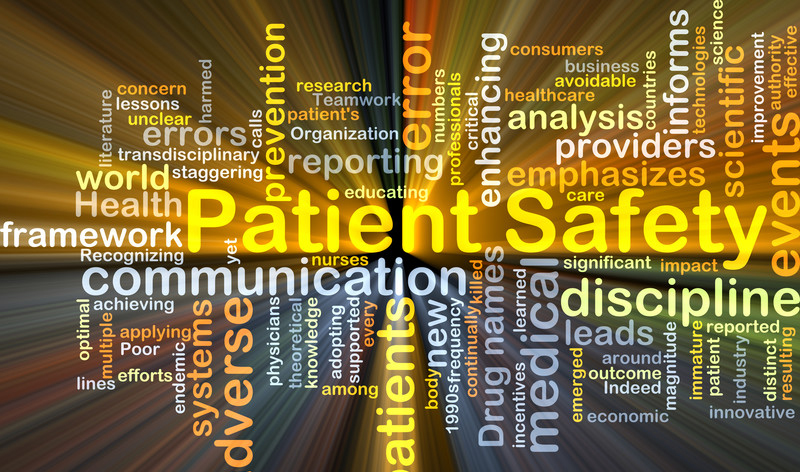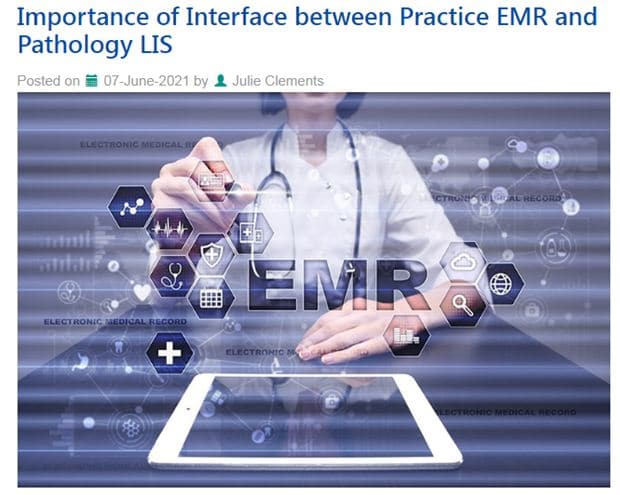Running through March 17, 2019, Patient Safety Awareness Week (PSAW) is focusing on culture of safety and patient engagement. This is the right time to discuss the top patient safety concerns in 2019 as listed in a recent report from the ECRI Institute. Medical transcription companies ensure accurate and timely EHR documentation to help in the delivery of safe and effective patient care. However, the ECRI’s annual safety report named improper management of test results and diagnostic tools within EHRs as the top patient safety concerns in 2019. The report listed provider burnout and mobile health snags as other top patient safety worries.

The number one patient safety concern, according to the report, is diagnostic stewardship and test result management using EHRs. While most healthcare providers rely on EHRs for clinical decision support and test result tracking, ECRI says that they should remember that these systems are only part of the diagnostic process. The report states that the diagnosis, the treatment plan, and the follow-up plan must be clearly communicated in the EHR so that future clinicians can understand it. Faulty information or missing test results can lead to diagnostic errors. To avoid this, the report notes that providers:
- Must properly utilize an EHR designed to meet their practice’s unique needs
- Understand the importance of clear communication, both among caregivers and between caregivers and patients
- Have all the information and test results available in the EHR
- Know when and where to find this information to make the right diagnosis
ECRI’s 2019 report lists antimicrobial stewardship in physician practices and aging services as the second most important patient safety concern. Organizations need to be able to implement and support antimicrobial stewardship programs. Patients expect an antibiotic to help them get better. Unnecessary antibiotic administration puts patients at unnecessary risk of adverse drug reaction and overprescribing leads to antimicrobial resistance. To cut this threat, physicians need to manage patient expectations. Antibiotic stewardship does not mean withholding necessary treatment. It means determining an antibiotic’s appropriateness for the patient being treated. ECRI recommends that in some cases, the best policy is to give patients a prescription for what to do, what to watch for, and follow up with them.
Many studies have shown that physician burnout negatively impacts patient care and safety. ECRI lists healthcare provider burnout as the third patient safety concern. “Burnout is indiscriminate,” notes the report. “It affects physicians (including trainees), nurses, allied healthcare providers, and organizational leaders alike. And it can no longer be ignored.”
By ensuring efficient EHR-integrated clinical documentation support,medical transcription outsourcing can reduce physician burnout significantly. Besides EHR documentation, the report identifies the factors responsible for burnout as:
- The high expectations that physicians have for their own performance
- Keeping up with the rapidly evolving healthcare scenario
- Time pressures and limited resources
- Treating an increasing number of patients with complex medical conditions
To address burnout effectively, the report notes that organizations must address providers’ concerns about workload, performance criteria, and suboptimal resource allocation. Moving to a safety culture that rewards and recognizes a job well done is necessary, the authors point out.
According to ECRI, the number 4 patient safety concern relates to mobile health snags. Mobile health technology is transporting healthcare into the home, but ECRI notes that it comes with the following patient safety risks:
- Lack of government regulation of new technologies
- Barriers to ensuring that providers are accurately receiving the data a device collects
- The possibility that a patient is not using the technology correctly or is not using it at all
The report recommends the following measures to address mobile technology usability concerns:
- Ease of use
- Establishing methods for informing clinicians about user error and inactivity
- Identifying the right candidates for mobile health
- Clearly defining goals before recommending any care plan featuring mobile health technology
- Matching patient health conditions to the right piece of technology
- Assessing the likelihood the patient will accept mobile technology
- Providing training for both providers and patients on how to use a device
The next patient safety challenge on the ECRI list is reducing discomfort with behavioral health. Patients with behavioral health needs are present in every care setting, the report states, and they need to be treated with dignity and respect.
However, healthcare providers don’t necessarily recognize this, says the report. As a solution, the authors recommend options such as certified training, training led by internal experts or consultants, community behavioral health first-aid workshops, or a combination. Also, healthcare organizations can also develop internal and external support systems and should utilize community resources whenever possible.
The list of patient safety concerns in 2019 also includes: failure to detect changes in a patient’s condition, developing and maintaining clinical skills, early recognition of sepsis across the care continuum, infections with peripherally inserted IV lines, and problems with standardizing safety efforts across large health systems.
“Regardless of organization size, the goal is to institute structures that effectively allow patient safety leaders to support organization leadership in engaging with patient safety priorities”, the authors conclude.
Outsourcing medical transcription will allow healthcare providers to focus on resolving these patient safety concerns.


